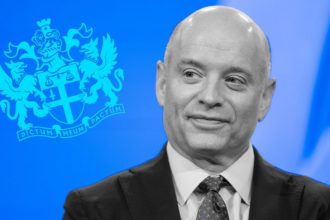Joseph is the CEO of SnapAds, which helps local businesses find, keep and reward customers.
If you are thinking of starting a company then you are likely wondering about the pay. While starting a company can be an amazing experience, you have to be prepared for what lies ahead. A great idea, business plan and team can make a big difference, but if you can’t keep the lights on in the beginning, it won’t matter in the end.
As a serial entrepreneur, I’ve started many successful enterprises, and while my last one grew to millions in revenue, for much of the six years growing it, I didn’t take a salary.
There is debate about founders and how much they should pay themselves. But if you want to start a company for the pay, it may not be the best career path, especially at first.
Getting Your House In Order Before Starting Your Venture
I grew up on a reservation in Oregon where everyone was an entrepreneur, though we called it survival. That hustle was everyday life. I mention this because my own children have grown up with the complete opposite environment that includes private schools, trips around the world and more wealth than I could have dreamed of at that age.
I meet a lot of founders, and it’s no surprise many come from wealthy families. But most people today don’t have such resources. Kids, work, school debt, bills—they all pile up, and an entrepreneur who is facing that is starting in the hole.
What many wealthy and independent entrepreneurs may not appreciate is that poor founders don’t just have themselves to worry about. In my family, we called it the spiderweb: One touch and it has you. An example of the spiderweb is loaning to a family member to stop an eviction or chipping in to cover the doctor’s bill of a hurt niece. They all add up and the obligatory pressure to help can be impossible to ignore.
Coming from a wealthy family who doesn’t need your financial help provides a powerful mental health advantage. I’m not saying rich founders don’t stress about their company’s finances, but not having additional stress at home is a game changer. When you have kids, student debt, car loans and a mortgage, if you’re not prepared, it can be impossible to go without pay while your company gets its footing.
Calculating How Much Money You Need From Investors
The problem is the “valley of death” where most startups die. It’s where no one believes in your idea and only your friends and some fools give you a little money to get started. You don’t have revenue and customers are still a hopeful dream. At this point, you try to raise money from investors and a big question is how much.
There are trade-offs in raising money. The more you raise the less of your company you will own, but the less you raise the less money you have to survive. I find a normal offering is selling 20% of your company and raising around $500,000 to $3 million. The variance in those amounts is based on your company’s valuation, which is directly related to you as a founder or your company’s traction. For instance, a second-time founder might fetch a higher valuation.
The money you raise from investors defines the next 18 months of your business’ existence. If your company can grow by 200% to 300% in the next 18 months, then you might be able to raise more funding, otherwise, you might have to shut down.
This is why preparing for being an early startup founder is so important. What you do before you start your business can have a major impact on your success. Cutting your living expenses down to drastic amounts and planning to live on beans and rice may even be necessary.
How Much Should A Startup CEO Get Paid?
I fully agree that when you raise money from investors, you deserve to get paid, and the investors who will benefit from the company’s growth always expect you to take a salary. The normal is around $70,000 a year for the first round of funding and then increasing from there. If they raise over $1 million, I’ve seen the CEO receive as much as $100,000 per year. Over that amount and you may have investors worried about your focus.
The problem comes when you look at your budget and 18 months barely gets you enough development to get to revenue. This is when the hard times come. You may have to trade your salary in order to keep paying workers to help build and sell your product.
This is when founders who can go to zero salary get the win. It is one of the reasons wealthy founders have an advantage and why founders who don’t come from wealth must be prepared in advance to live on nothing if need be. Without this ability, I think you might as well save your health, marriage and social life and stick to a day job. It could actually be more financially sound in the long run.
Paying Dues And Reaping Rewards
At the end of my last endeavor, I was making $250,000 a year plus a board-approved bonus. However, in the first three years, I was forfeiting my pay to keep the lights on and the team funded. Luckily, when we had an exit, the board rewarded me with a stock bonus to make up for lost pay.
You might be asking why the investors provide more funding. The reality is during the valley of death, even your investors can lose faith, so finding money in the budget for your pay can be difficult until you trudge through and start bringing in revenue.
Take it from me: If you are a founder who doesn’t come from wealth, it is key to find other ways to prepare in advance for these flexible pay expectations. Make sure to take a long-term perspective and be ready for commitment, sacrifice and to lean on alternative strategies.
Forbes Business Council is the foremost growth and networking organization for business owners and leaders. Do I qualify?
Read the full article here





